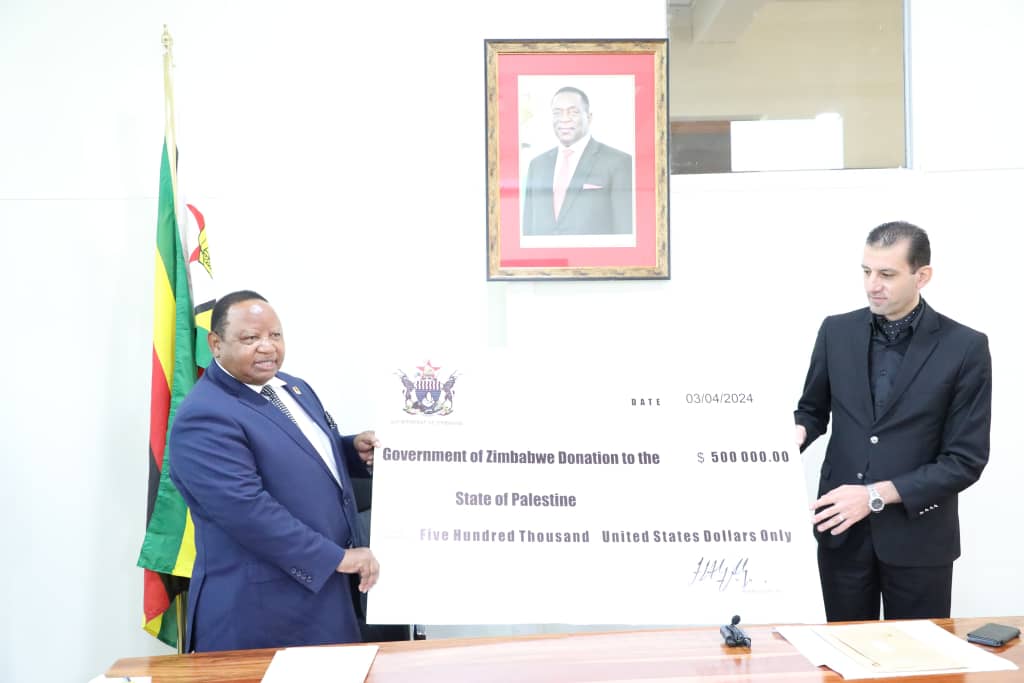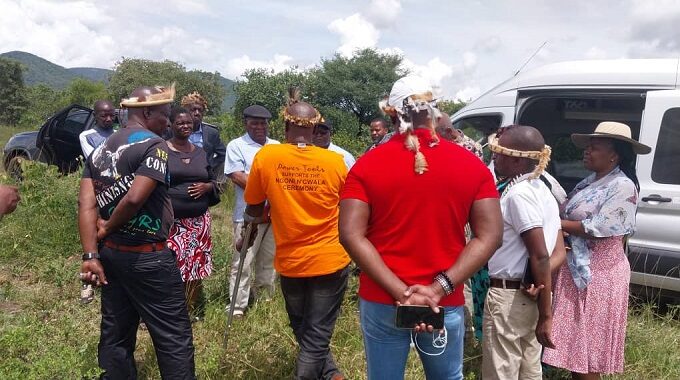Former army commander General Solomon Mujuru knew about the Gukurahundi atrocities as early as February 1983 but did nothing contrary to a statement by his wife early this month that he had nothing to do with the massacres.

Related Posts:
- Joice Mujuru says hubby Rex Nhongo was shot dead, calls Mugabe a backward liar
- Joice Mujuru ally raped Judith Todd for exposing Gukurahundi atrocities in 1983
- Rex Nhongo:Murder mystery:
- BREAKING NEWS:CIO unleashes shocking classified documents on Grace Mugabe as Zanu PF dogs fights gets nasty
- I will hunt down my husband’s killers: Mujuru
- Mujuru rare image
- VP Mphoko Rubbishes ‘lack of national appeal’ Claims, Attacks Dabengwa
- I was ordered to rape Judith Todd: Joice Mujuru Ally
Zimbabwe People First leader Joice Mujuru, who was in President Robert Mugabe’s government for 34 years before being fired after serving 10 years as the country’s Vice-President, told the Sunday paper, The Standard, that General Mujuru was out of the country when the massacres started.
“Solomon was a people’s person. He was their soldier, their commander, their hero. He worked hard to bring together ZIPRA and ZANLA during the liberation struggle. Because he had worked with ZIPRA before joining ZANLA, he had acquaintances in both liberation war armies; hence it was easy for him to bring them together.
“It is also for the same reason that he had to be called back from Pakistan where he was attending a military course when Gukurahundi started. He had to be called back to try to find ways of ending the fighting that had started in his absence,” she said.
But according to Judith Todd, in her book Through the darkness, which dedicates a chapter entitled- Meeting the army commander, Todd met Mujuru, then known as Rex Nhongo, Brigadier Agrippah Mutambara and Justin Nyoka at the Quill Club in Harare on 17 February 1983 and informed him about the atrocities.
Todd says she had been given documents detailing the atrocities by the Catholic Bishop of Matebeleland Henry Karlen to hand over to her father Garfield Todd who was a senator at the time.
Nyoka, who was the director of information, tried to shut her up from telling the story, by Mutambara urged her to speak saying: “No, let her speak. She may know things we don’t. Let us hear what she has to say.”
“Nhongo was stuttering, whether in horror or anger, I couldn’t tell,” she writes. “I learned later that the stutter was a normal part of his speech. People passing our table kept trying to greet him, and he waved them all away.
“He asked me for specific localities. I said I would find out for him. He said he was going to Matabeleland by helicopter the next day, and would send a car for me so that I could go with him and show him the mass graves. I said unfortunately I couldn’t as I had only heard about them and not seen them myself.”
Todd says she gave Nhongo her number and later phoned Bishop Karlen asking if she could give Nhongo copies of the documents. The Bishop agreed rather reluctantly. She gave the documents to Mutambara, whom she said raped her, with the following letter to Nhongo. It was dated 21 February 1983.
Lieutenant General Nhongo
Army Commander
Zimbabwe
Dear General,
It was a privilege to talk to you and your friends at the Quill Club last Thursday evening, and to hear your views. My own strong feelings were based in part on evidence which I was then not authorised to pass on to you.
I now enclose a copy of a letter and reports compiled for the Prime Minister. I believe that Cdes Sekeremayi, Muzenda, Mnangagwa and perhaps others have also been given these copies. Bishop Karlen has given me permission to give them to you. You can see for yourself the terrible suffering which they portray, if even half of these limited reports are accurate.
It seems to me that if, in the hunt for dissidents, we inflict such enormous damage on people who are Zimbabweans, and who are poor, weak, hungry and defenceless, all we will achieve is the creation of more dissidents forever. I believe that this policy can only harm Zimbabwe. I also believe that when Zimbabweans throughout the country learn what is happening, they will lose confidence in our government and in our national army.
When I hear of such damage to our people I find it very difficult to sleep at night, or to work during the day. But while I am not in the position to provide these tormented peasants with food, with comfort and with safety, at least I can pass on to you what news I have of them. I am sure that you are able to help provide the food and protection, and that the army can be redirected to healing and construction.
One of the things that frightens me most is to be told of the ‘disappearance’ of so many young men from the affected areas-people who have never been proved to be dissidents but who probably played a brave role in the struggle for Zimbabwe- their Zimbabwe as well as ours. Surely the way to ‘deal’ with dissidents is to establish first why they are dissidents, then to think of remedies? In other words, surely a political solution- perhaps then backed up by the military-is required rather than an intransigent military one which, in my humble opinion, cannot be a solution but which can breed only more violence, bitterness and grief.
Thank you for your attention.
Yours sincerely,
Judith Acton
Todd says there was no further reaction from either Nhongo or Mutambara.
Mutambara, who later became an ambassador has been in the news recently , as one of the former senior ZANU-PF officials who joined Joice Mujuru’s ZimPF. His rape of Judith Todd has also come up but he argues that he was just following orders. It is not clear whether these orders were from his commander, Rex Nhongo or not.
The “dissident” war only ended in 1987 culminating in the unity accord between ZANU-PF and the Zimbabwe African People’s Union.-Insider







